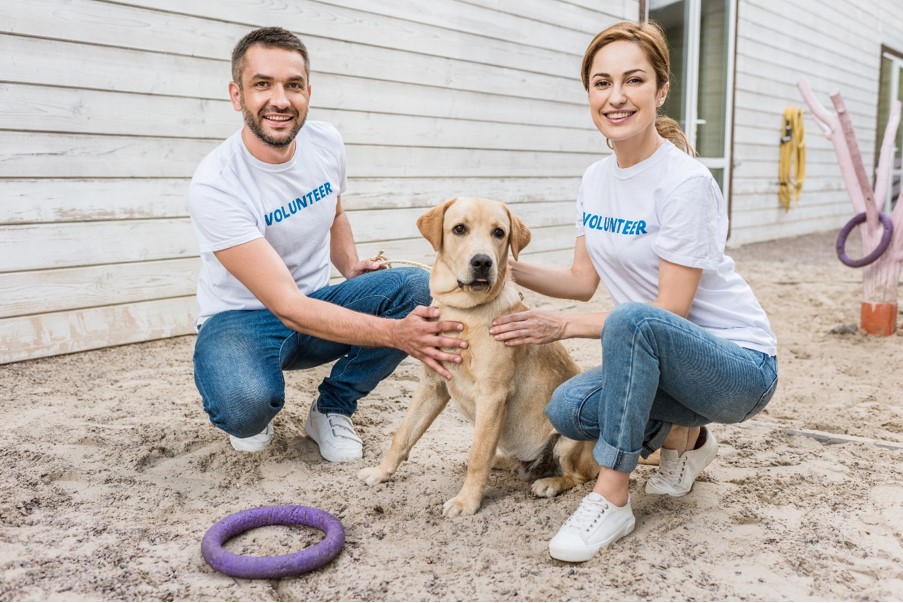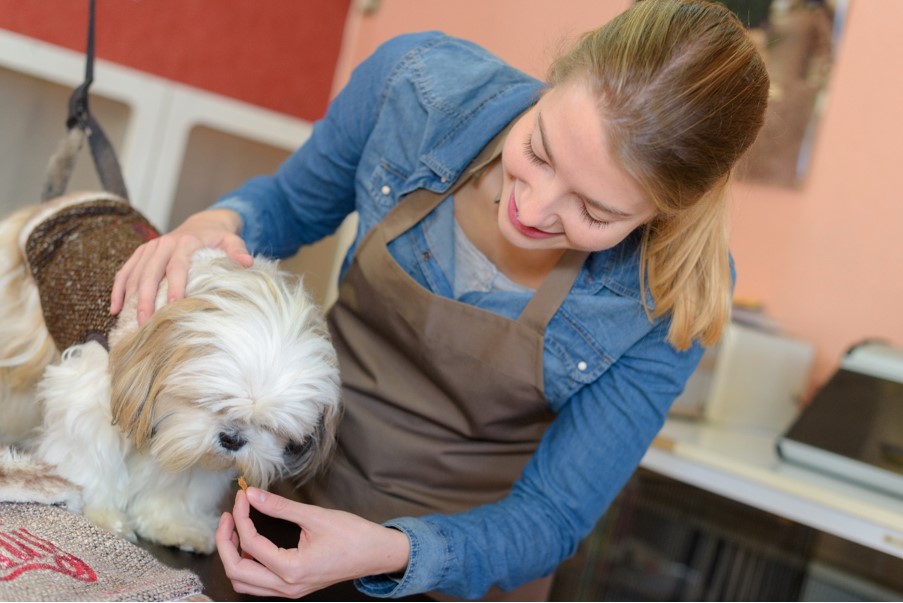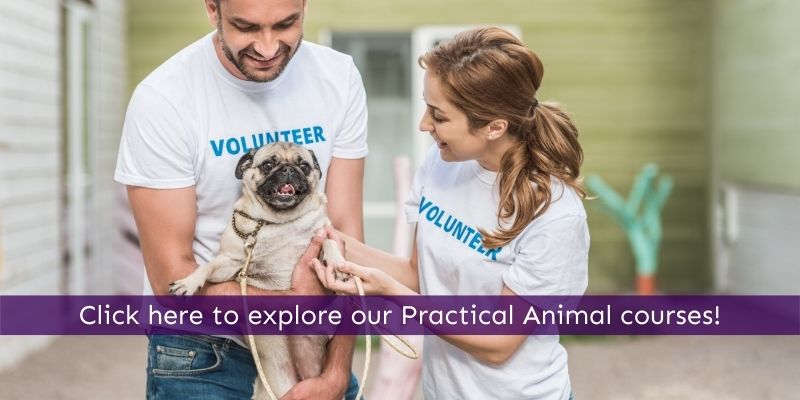Work experience is one of the topmost and commonly requested requirements from animal employers and recruiters.
Showing employees real evidence that you have work experience is often a golden ticket into an animal role. However, there are many types of work experience and many different opportunities to gain experience.
The value of work experience with animals
You might be wondering how valuable work experience is and what do you gain from it.
Getting hands-on, practical training is essential if you want to be fully competent and confident for a career working with animals.
It is also proof that you can handle the working conditions and understand what might be expected of you if you in that specific role or sector.
Getting experience working for an organization, charity or small animal business can also give you the foundation to prepare for employment or training. For example, during your work experience or placement, you may discover a specific area that particularly interests you and that might be the career route you choose to go down.
Different types of work experience with animals
What exactly is the type of work experience that animal recruiters are requesting to see from job applicants? In general, work experience is usually 1 to 2 weeks long and depending on where your work experience is, it can take many different forms and involve different types of training.
- Volunteering
Animal rescue centres, animal welfare charities and kennel and cattery organizations are the types of places that can offer hands-on experience. Volunteering usually means up-paid work, but the training and knowledge you gain will be invaluable.
- Work placement
This type of work experience is usually associated with on-the-job training or included in a related course. These can be accompanied by a placement officer or educational tutor who will support you throughout your experience. Some companies offer work placements as part of a qualification. This can be incredibly useful for getting a foot in the door and a chance to build networking opportunities once the student has completed the qualification.
- Work Shadowing
Shadowing someone at the place of work might be for a few days or a few weeks into training, work experience or as part of the full-time job. This is a great opportunity for someone who is practical and learns with visual queues and can learn by watching a professional perform that job at hand. Job shadowing would be a perfect fit for a trainee dog groomer for example.

The benefits of dual training
Working with animals in any capacity is in extremely high demand, and it can often be quite difficult to secure a placement or a few weeks of work experience.
One of the ways you can secure work experience is through an Ofqual regulated Qualification that includes a practical placement.
It is also a legal requirement to have a relevant qualification to work with animals in the UK.
To meet the minimum standards of the Animal Licensing Activity requirements (AAL), set out by the UK government, workers must demonstrate a level 2 Ofqual regulated qualification. Or to meet the higher standard workers need to demonstrate a relevant qualification in that specific field.
This means that managers and hiring staff within the animal sector cannot hire an individual without a relevant qualification or experience. There are also entry requirements to certain jobs such as Veterinary Nursing for Assistants. This type of job in Veterinary care requires candidates to provide evidence of work experience with animals before they can apply to full-time assistant roles.
- 1) Getting work experience in a Veterinary Surgery or PracticeOne of the easiest ways to get work experience at a Veterinary surgery is through a course that includes a placement.
The Level 2 diploma for Veterinary Nursing Assistants is a 10-module course that includes a practical placement with a qualified Veterinary Nurse of Vet. This means that your placement can be within a private practice, a charity, a zoo or with an animal care business. Studying the theory element first and following with a placement, will prepare you to understand the work in veterinary medicine, anatomy, physiology, and behavioural needs of animals.
- The Level 3 Diploma is an Ofqual regulated qualification and meets the minimum AAL requirements at Level 2. It is a great alternative route to GCSEs and enhances the opportunity to progress to the Royal College of Veterinary Surgeons Level 3 Diploma. Students who enrol on this course will need to find a placement within a registered Veterinary Practice or an animal establishment that has an element of veterinary care. The student advisors at animal courses direct are at hand to support students find and secure a placement for the practical experience.
2) Getting work experience at a Dog Grooming School

A great way to get a feel for a Dog Grooming job is to study it in real-time. Dog grooming is a highly technical skill and requires hands-on training, expertise, and skills to complete.
The Level 3 Diploma in Dog Grooming is a regulated qualification developed by canine professionals. This is an Ofqual regulated qualification and meets the higher standards of the (AAL) license.
This course includes 25 days of invaluable practical training with dog grooming experts in a dog grooming school in the UK. This gives learners the chance to practice grooming, styling, and prepping techniques on different breeds of dogs that have various coat styles and lengths.
At the end of this qualification, students will be equipped with the relevant work experience to apply for roles in the dog grooming sector.
3) Getting work experience with wild animals in a Zoo
People who are passionate about animals and want a job in this sector may have dreamed about becoming a Zookeeper. Zookeeping is another highly-sort-after job in the animal care sector and requires both training and practical experience to be successful.
Animal enthusiasts can gain experience in this field through the Level 3 Diploma in Zookeeping. This Ofqual regulated qualification includes a 2-week practical with hands-on experience working in a prestigious Zoo in the UK.
The course itself provides a fantastic insight into animal conservation, animal welfare, management of zoos and animal enrichment. There are limited spaces for practical training therefore it is advised that students complete all of the theory elements of the course and notify their tutors of their availability for the practical.
For more options on practical hands-on training and work experience with animals, you can visit our website where we have a range of courses that include once-in-a-lifetime practical experiences with animals.
If you would like to hear more from our student advisors please contact us here or by calling 01202 006 040.
Also, if you adore animals, you can keep track of all upcoming animal awareness days and events with our FREE calendar! Download it here.

















